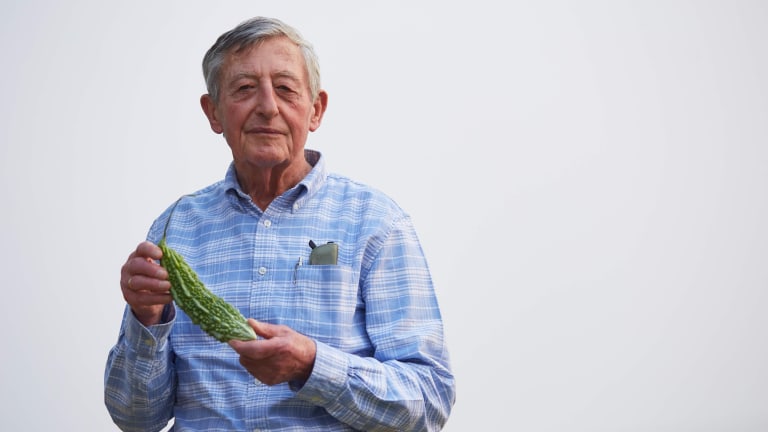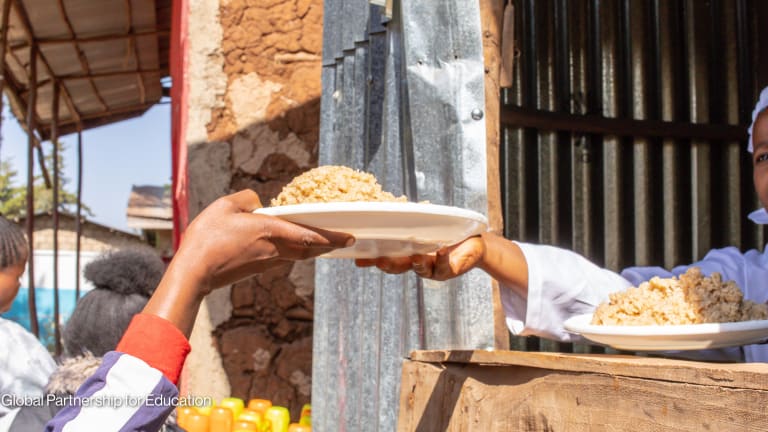
VANCOUVER — Empowering more women farmers is key to improving nutrition, according to Antonella D’Aprile, country director for Nicaragua at the World Food Programme.
“If we achieve gender equality and economic empowerment, we can ensure that women make the right choices for their children and family’s needs and get the right nutritious food for a healthy life,” D’Aprile said of WFP’s work with women farmers.
Explore Devex’s dedicated news section with regular, editorially independent coverage of the challenges, solutions, and innovations in nutrition, with financial support from our partner DSM.
Despite Nicaragua having halved undernourishment by 2014 and almost 70% of the Nicaraguan population engaging in agriculture, adequate nutrition remains an issue. 50% of people are now either overweight or obese, 17% of children under 5 remain chronically malnourished, and a further 8% are overweight.
D’Aprile believes the WFP Women Economic Empowerment Strategy — currently being rolled out in the country and focused on providing women smallholder farmers with technical assistance and promoting gender awareness — can help tackle the issue.
“We realized that in order to contribute to a zero hunger in Nicaragua, we needed to achieve gender equality, especially in the sector of agriculture, which is where we have a large program.”
Sitting down with Devex on the sidelines of the Women Deliver conference, D’Aprile explained how the strategy works, the lessons they’ve learned, and the advice she’d give for replication.
“The most important thing is that we have men and women working together from the very beginning of program design.”
— Antonella D’Aprile, Nicaragua country director, WFPThis interview has been edited for length and clarity.
How is empowering women in an agricultural setting a part of reaching zero hunger by 2030?
It's making income, so feeling more independent because … the income enables you to make decisions. Through the WFP’s Women Economic Empowerment Strategy, there’s also access to nutrition education. Traditional food is absolutely nutritional, but because of the new phase of malnutrition — which is the use of junk food — the habit [of eating nutritional food] is getting lost, so we are just helping to revamp it.
It's not only about food security, but we need nutritional security in order to have a healthy life.
Can you explain more about how the strategy is implemented?
We realized through supporting smallholder farmers through 15 cooperatives in the country, that women didn't have that much participation. Most importantly, they didn't assert themselves as farmers. That was the trigger for us to think and design a program to make them participate in the decision-making of the cooperatives, identify themselves as farmers, create a gender-sensitive environment across the cooperatives, and ultimately provide them with the proper training and agricultural equipment so that they could be linked to the local market and make their own money.
The strategy started in Nicaragua in 2016 as a result of a pilot project we had done over the previous five years and was implemented thanks to a contribution from the government of Canada. We have reached 300 women who are female farmers and active in their cooperatives. Forty percent of the women also managed to utilize the information acquired during their financial education training by putting the right prices on food they harvested.
What is really striking is that five of the eight cooperatives have put in place a gender policy. They made the environment conducive for women farmers to work in and be active in the decision-making.
What does “a conducive environment for women” look like?
Part of the training we conducted included a module on healthy masculinity to make men part of this transformation of the gender roles, so they understood they had to be supportive of women, share domestic chores, and support the economic development of their wives.
We also designed a module around men and women working together and understanding the importance of sharing tasks in the daily life they have.
We aim to reach 6,000 farming families over the next five years with different activities and projects so this is part one of the projects.

Through your experience with this program, have you found any challenges in encouraging and empowering women to join the agricultural workforce?
Traditionally in Nicaragua, women do a number of agricultural tasks. The issue is that they do not assert themselves as farmers.
How to better integrate gender equality and nutrition
Women are disproportionately affected by malnutrition. Experts at the Women Deliver 2019 conference explain how to integrate a gender transformative approach when tackling malnutrition.
By tackling this, you create opportunities for women to empower themselves and contribute to the agricultural sector in a more structured way. In fact, in the training we offer, we do financial education and business planning so that they understand that what they are doing is very important and that they can make an income out of it. It's not only for subsistence, but all the products can be put on the local market.
Then there is one training designed on identity, self-assessment, and self-assertiveness. We have a gender expert in the office and this is a luxury because not all country offices have one. Our gender expert worked with other cooperatives of women to develop this module on identity so it's been conceived bottom up.
Do you have some key pieces of advice for other countries wanting to replicate this program to tackle nutrition?
Guatemala, Peru, and El Salvador are starting to replicate and we’ve reached out through our gender office in Rome to see whether we can support them since we are spearheading such an important initiative.
The most important thing is that we have men and women working together from the very beginning of program design.
It’s also important that the teams working on these projects are well trained and prepared. For example, the WFP Nicaragua country officer undertook a gender transformative program before designing the project. It's an internal corporate program but it helps put everyone — including management — on the same page on what gender equality is, why we want to achieve it, and what the tools are. It gives you information, which is very important if you want to have a successful project.
This focus area, powered by DSM, is exploring innovative solutions to improve nutrition, tackle malnutrition, and influence policies and funding. Visit the Focus on: Improving Nutrition page for more.








